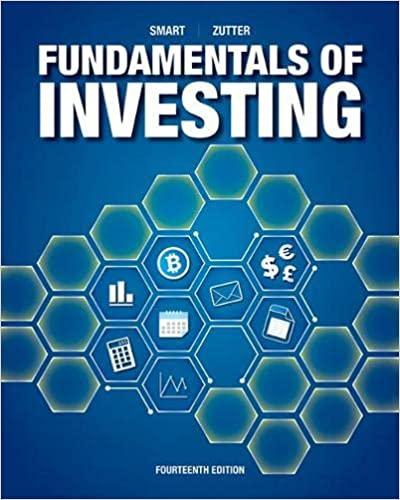
Is each of the following statement true or false? Briefly explain your answers. 6. Stocks with larger market capitalization (market capitalization is equal to total number of a company's outstanding shares multiplied by the stock price.) pay higher dividends. This observation contradicts the semi-strong form of efficient market hypothesis. 7. One could have made higher-than-average dividend yields by holding stocks with low capital gains. This observation contradicts the semi-strong form of efficient market hypothesis. 8. Suppose that you are a quantitative stock analyst who has built a model that uses today's stock return to predict whether the next day's stock price increases or decreases. You have found that your model correctly predicts next-day stock price changes for half of the trading days during your five years' career. This observation contradicts the weak form of efficient market hypothesis. 9. For a long time, a hedge fund uses the following profitable trading strat- egy: when some positive (negative) news is released for some industry, it immediately buys (sells) stocks of firms belonging to upstream industries of that industry. Firms belonging to upstream industries are suppliers of the firms in the industry for which the news is released. This trad- ing strategy generates a positive abnormal return. This contradicts the semi-strong form of efficient market hypothesis. 10. A firm's stock price will increase immediately when it announces that it is going to buy back some of its own stocks from investors. This observation contradicts the semi-strong form of efficient market hypothesis. Is each of the following statement true or false? Briefly explain your answers. 6. Stocks with larger market capitalization (market capitalization is equal to total number of a company's outstanding shares multiplied by the stock price.) pay higher dividends. This observation contradicts the semi-strong form of efficient market hypothesis. 7. One could have made higher-than-average dividend yields by holding stocks with low capital gains. This observation contradicts the semi-strong form of efficient market hypothesis. 8. Suppose that you are a quantitative stock analyst who has built a model that uses today's stock return to predict whether the next day's stock price increases or decreases. You have found that your model correctly predicts next-day stock price changes for half of the trading days during your five years' career. This observation contradicts the weak form of efficient market hypothesis. 9. For a long time, a hedge fund uses the following profitable trading strat- egy: when some positive (negative) news is released for some industry, it immediately buys (sells) stocks of firms belonging to upstream industries of that industry. Firms belonging to upstream industries are suppliers of the firms in the industry for which the news is released. This trad- ing strategy generates a positive abnormal return. This contradicts the semi-strong form of efficient market hypothesis. 10. A firm's stock price will increase immediately when it announces that it is going to buy back some of its own stocks from investors. This observation contradicts the semi-strong form of efficient market hypothesis







